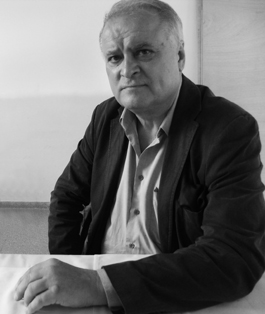
Jan Bočan awarded the ČKA Honor
 |
Proposals for the award of the Honor are submitted annually by the professional public, including members of the various bodies of the Czech Chamber of Architects. The laureates are then selected by a professional jury from the nominations. In the jury that proposed the award of the ČKA Honor for 2020 to Professor Jan Bočan sat architects Radko Květ, Jiří Opočenský, and Jan Šépka, along with theorist Vendula Hnídková and journalist and critic Karolína Jirkalová. The Czech Chamber of Architects awards this accolade to individuals in the field whose work and moral credit have significantly marked modern history in Czech architecture.
ČKA Honor for 2020 – Professor Jan Bočan
Professor Jan Bočan (October 17, 1937, Český Brod — December 10, 2010, Prague) was a Czech architect and university educator associated with the Faculty of Architecture of the Czech Technical University in Prague. He graduated in 1962 and returned in 1990 as the head of a studio. In the post-revolution period, he was one of the key educators determining the direction and method of leading studios and teaching architecture in the Czech Republic. He was appointed professor in 2006.His first professional engagement was at the national enterprise Konstruktiva. However, his main workplace became the Beta studio, led by architect Jan Šrámek.
As a co-author, he is credited with the design of the new building of Prague's main railway station (1973), the interiors of the Prague InterContinental Hotel (1974), the Prague residential area Velká Ohrada (beginning construction in 1978), and several buildings of diplomatic missions – e.g., the embassy building in London (1971), Stockholm (1972), or the interiors of the embassy in Brasília (1973).
For the embassy building in London, he, along with the team of authors, received the Award for Best Implementation of the Year 1971 from the Royal Institute of British Architects (RIBA).
Jan Bočan is the author of the diplomatic quarter in Prague Troja (beginning construction in 1989) and the Czech embassy in Tbilisi (2005). The implementation of the embassy in Tbilisi was awarded in 2005 by the Union of Architects and the Ministry of Construction of Georgia. Jan Bočan also worked at the Georgian Technical University in Tbilisi, where he was awarded an honorary title of professor. He brought principles of European education to Georgia and contributed to the intensification of Czech-Georgian cultural relations.
Despite his distinctive authorship and awarded solutions, Jan Bočan refused to settle into the structure of a normalizing society, which was often associated with membership in the communist party, a choice he, as Bočan himself emphasized, never made.
The permanent team-based form of creation became the dominant principle into which Jan Bočan initiated architecture students during his teaching activity at the Czech Technical University in Prague. Many architects who successfully establish themselves in the domestic architectural scene emerged from Jan Bočan's studio.
The jury of the ČKA Honor suggested awarding the accolade to Jan Bočan for "a lifetime contribution to the field of architecture, as well as for his formative influence on the upcoming generation of architects during his pedagogical work at the Czech Technical University in Prague."
The English translation is powered by AI tool. Switch to Czech to view the original text source.
0 comments
add comment











